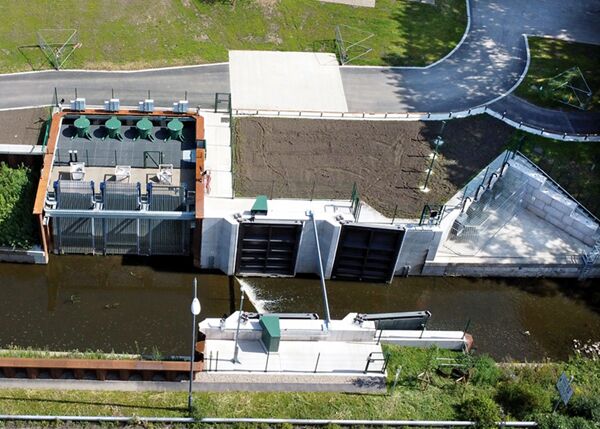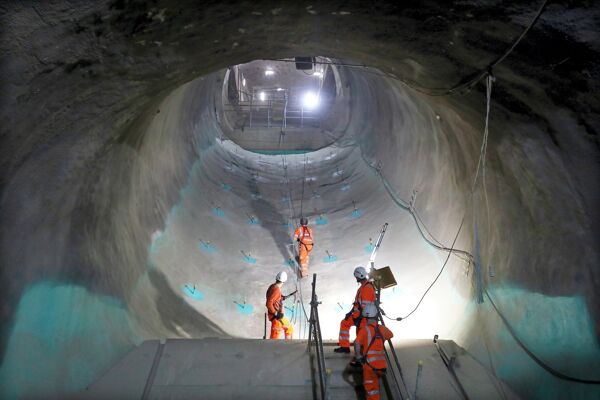
Leicester County Council in the UK has used NEC to create the largest new-build office facility in the county in the last 20 years. Completed in 2020, the Leicester University Science and Enterprise Park (LUSEP) near Holywell Way in Loughborough provides 7400 m2 of category A office space over four floors. The building is now the UK headquarters for global business software firm The Access Group and generates £1.6 million a year to support front-line council services.
Built on land owned by Loughborough University, the development forms part of the council’s ambitions to develop its estate to help provide long-term financial benefits for the region, including the creation of up to 500 jobs. The project was procured using an NEC3 Engineering and Construction Contract (ECC) Option A (priced contract with activity schedule) through the NEC-based Scape Major Works UK framework, for which Wates is the main contractor.
Pick Everard provided multi-disciplinary consultancy services, including NEC project manager, under an NEC3 Professional Services Contract (PSC). The services were delivered on behalf of Perfect Circle − a company jointly owned by Pick Everard, Gleeds and Aecom − and procured via the Scape Consultancy direct-award framework.
Work started on the former agricultural site in February 2019. Extensive earthworks were required to level and stabilise the soft and wet ground, after which the steel-framed, composite-floored, glass-and-metal-clad building was completed on time and budget in October 2020. The building, which is equipped with solar panels, LED lighting and electric vehicle charging points, achieved an ‘A’ environmental performance assessment and ‘very good’ Breeam sustainability assessment. It also won the 2021 NEC Building/FM Project of the Year award.
One team approach
According to Pick Everard project manager Oliver Hatton, ‘In line with the NEC obligation to act, “in a spirit of mutual trust and co-operation,” a one-team approach was adopted between the county, the university, the consultants and contractor. Procurement through the NEC-based Scape frameworks also ensured all the project team members were in place from the earliest stages. This reinforced the atmosphere of collaboration, which remained over the course of the project lifecycle and ensured effective administration of the contract.’
He says a collaborative and compliant contract management system was used by all parties across the project. ‘The Sypro cloud-based system gave all team members immediate access to any risks and events raised. This allowed for immediate action to any risks which might have impacted on the delivery, in line with the NEC early warning process.’
Hatton says risks were identified pre-contract and agreed with the contractor, which managed each risk and the associated mitigation. ‘Any events with time or cost impact were raised as NEC early warning notices on Sypro and reviewed by the core project team.’
Significant events
Significant events occurred during the project which had impact on time and cost. According to Hatton, ‘Early notification, collaborative discussion, decision and re-programming meant that project delays were minimised and all target completion dates were achieved.’
For example, he says that during construction there was a change in the design requirement. ‘Initially the second floor had been shell and core, however a change to full category A specification caused a small delay to this section of the programme. To address the issue, we agreed with the contractor to re-sequence the programme as well as changing to seven-day-a-week working, which ensured minimal delay and mitigated the impact as much as possible.’
Following the start of the Covid-19 pandemic in March 2020, the project manager worked with the contractor to ensure social distancing could be maintained throughout the site. ‘Installing certain elements such as the curtain walling meant that social distancing was not possible. Early identification of this issue meant the project team could put additional measures such spider cranes in place, which allowed operatives to stay 2 m apart,’ says Hatton.
He says the core team met regularly to discuss and review any issues with the programme. ‘Decisions were made promptly and formalised with issue of project manager instructions, acceptance or notification of compensation events, review and agreement of compensation event quotations and issues of programme. A very thorough and collaborative open-book approach was adopted, enabling the team to make decisions, contributing to the success of this project’.
Overall, there were 55 early warnings and 63 compensation events raised during the 84 week programme. ‘All early warnings were closed and all compensation events were agreed before handover in October 2020,’ says Hatton.
Benefits of Using NEC
- NEC obligation to act, ‘in a spirit of mutual trust and co-operation,’ led to adoption of a one-team approach between the parties.
- NEC created an atmosphere of collaboration, which remained over the course of the project and ensured effective administration of the contract.
- NEC early warning process meant that potential delays were identified and minimised so that all target completion dates were achieved.
- All 55 early warnings were closed and all 63 compensation events were agreed before handover.
By Simon Fullalove



